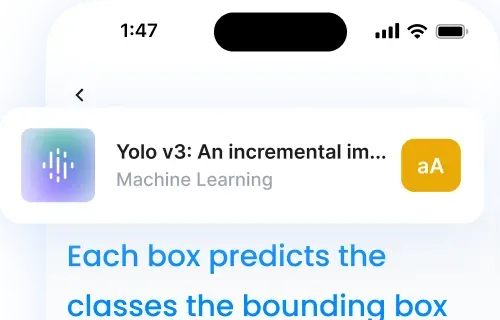Embarking on a PhD journey is a unique and challenging experience that transforms you from a student into an independent researcher. As a doctoral candidate, you’ll juggle multiple roles – student, researcher, and often teaching assistant – while focusing intensely on your dissertation.
The workload is demanding, often exceeding typical work hours, and requires strong time management skills. You’ll become part of a broader academic community, collaborating with peers and contributing to your field.
While the path can be arduous, filled with both setbacks and victories, it offers immense personal and professional growth. This journey varies by field and institution but universally develops critical skills like problem-solving and effective communication. Understanding these aspects of PhD life can help you navigate this transformative experience successfully, balancing academic demands with personal well-being.
Embarking on the PhD Journey
Deciding to pursue a PhD is a significant life choice that marks the beginning of an exciting and challenging academic adventure. As a prospective PhD student, you’re likely filled with a mix of anticipation and apprehension about what lies ahead. This journey is not just about earning the highest academic degree; it’s about transforming yourself into an independent researcher and contributing original knowledge to your field.
The first step in your PhD journey is selecting the right program and institution. This decision should align with your research interests, career goals, and personal circumstances. Once you’ve been accepted, you’ll quickly realize that life as a PhD student is vastly different from your undergraduate or even master’s experience.
The Daily Life of a Doctoral Student

A typical day in the life of a PhD student varies greatly depending on your field of study, research phase, and individual program requirements. However, there are some common themes that most doctoral students experience:
1. Research: The cornerstone of your PhD life will be your research project. You’ll spend a significant portion of your time reading academic papers, designing experiments, collecting and analyzing data, or developing theories, depending on your discipline. 2. Writing: Academic writing becomes a daily habit. Whether it’s drafting research proposals, writing papers for publication, or working on your dissertation, you’ll constantly be honing your writing skills. 3. Meetings: Regular meetings with your supervisor or advisor are crucial to discuss your progress and get guidance. You may also have meetings with your research group or collaborators. 4. Teaching or Assisting: Many PhD programs involve teaching responsibilities or working as a teaching assistant (TA). This can include leading seminars, grading papers, or assisting in laboratory sessions. 5. Seminars and Workshops: Attending departmental seminars, workshops, and conferences is an essential part of staying current in your field and networking with other researchers. 6. Administrative Tasks: Don’t forget about the less glamorous but necessary tasks like applying for funding, managing budgets, or dealing with ethical approvals for your research.
Managing the PhD Workload
One of the biggest challenges for PhD students is managing the intense workload. Unlike structured undergraduate programs, a PhD requires a high level of self-motivation and discipline. You’re often working without strict deadlines, which can be both liberating and daunting.
The workload of a PhD student can feel overwhelming at times. It’s not uncommon for students to work longer hours than a typical 9-5 job, especially as deadlines approach or when preparing for important milestones like qualifying exams or conference presentations. However, it’s crucial to establish a sustainable work routine to avoid burnout.
Time management becomes a critical skill. You’ll need to balance various responsibilities:
- Conducting your research
- Writing papers and your dissertation
- Teaching or TA responsibilities
- Attending classes (especially in the early years)
- Participating in departmental activities
- Maintaining a personal life and relationships
Learning to prioritize tasks, set realistic goals, and create a structured schedule can help you navigate the demanding workload of a PhD program.
Navigating the PhD Program Structure

While PhD programs can vary significantly between institutions and disciplines, most follow a general structure:
1. Coursework Phase: The first year or two often involve taking advanced courses in your field. This phase helps build a strong foundation for your research. 2. Qualifying Exams: Many programs require students to pass comprehensive exams to demonstrate their broad knowledge of the field before advancing to candidacy. 3. Research Proposal: You’ll develop and defend a detailed proposal for your dissertation research. 4. Research and Data Collection: This is the core of your PhD work, where you conduct your original research. 5. Writing and Defense: Finally, you’ll write your dissertation and defend it before a committee of experts in your field.
Understanding this structure can help you set expectations and plan your progress throughout the program.
Tackling the Dissertation Process
The dissertation is the magnum opus of your PhD journey. It’s a substantial piece of original research that contributes new knowledge to your field. The process of writing a dissertation is often described as a marathon rather than a sprint.
Key aspects of the dissertation process include:
- Developing a clear and focused research question
- Conducting an extensive literature review
- Designing and implementing your research methodology
- Analyzing and interpreting your results
- Writing and revising multiple drafts
- Receiving feedback from your advisor and committee members
- Preparing for and completing your oral defense
The dissertation process can be intellectually stimulating but also emotionally challenging. It’s normal to experience periods of self-doubt or writer’s block. Persistence, regular communication with your advisor, and setting small, achievable goals can help you make steady progress.
Balancing Academic and Personal Life
Maintaining a healthy work-life balance is one of the most significant challenges for PhD students. The demanding nature of doctoral studies can often lead to neglecting personal relationships, hobbies, and self-care. However, maintaining balance is crucial for your mental health and overall well-being.
Strategies for maintaining balance include:
- Setting boundaries between work and personal time
- Making time for physical exercise and relaxation
- Staying connected with friends and family
- Pursuing hobbies and interests outside of your research
- Seeking support when needed, whether from peers, mentors, or professional counseling services
Remember, taking care of your mental and physical health is not a luxury but a necessity for long-term success in your PhD journey.
Financial Considerations and Career Prospects
Financial stress is a reality for many PhD students. While most programs offer stipends or teaching assistantships, the pay is often modest. Learning to budget effectively and seeking additional funding opportunities through grants or scholarships can help alleviate financial pressures.
It’s also important to think about your career prospects early in your PhD journey. While academia is a common path for PhD graduates, many also find rewarding careers in industry, government, or non-profit sectors. Networking, attending career development workshops, and gaining diverse skills can enhance your employability post-graduation.
Embracing the PhD Journey
Life as a PhD student is a unique and transformative experience. It’s a journey of intellectual growth, personal development, and professional preparation. While the path can be challenging, with long hours, high expectations, and occasional setbacks, it’s also incredibly rewarding. You’ll have the opportunity to become an expert in your field, contribute original knowledge to the world, and develop a set of skills that will serve you well in any future career.
As you embark on or continue your PhD journey, remember that it’s not just about the destination but also the growth you experience along the way. Embrace the challenges, celebrate the victories (big and small), and don’t hesitate to seek support when you need it. With perseverance, passion, and a balanced approach, you can navigate the PhD experience successfully and emerge as a skilled researcher ready to make your mark on the world.









